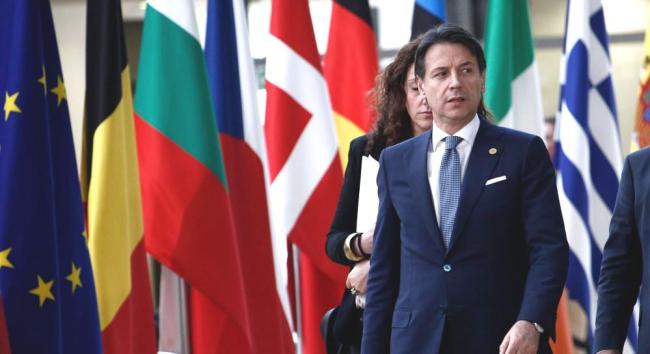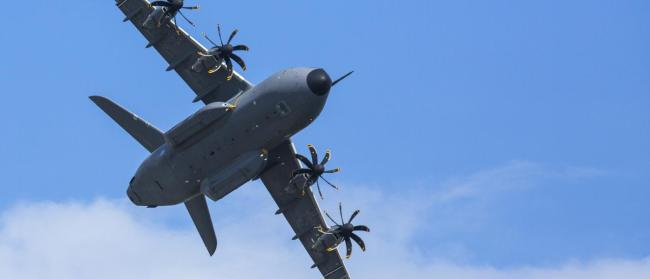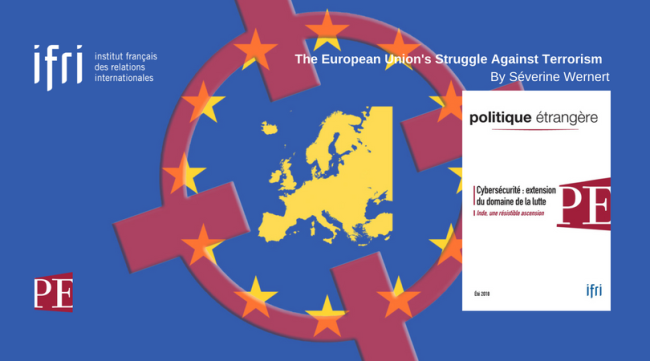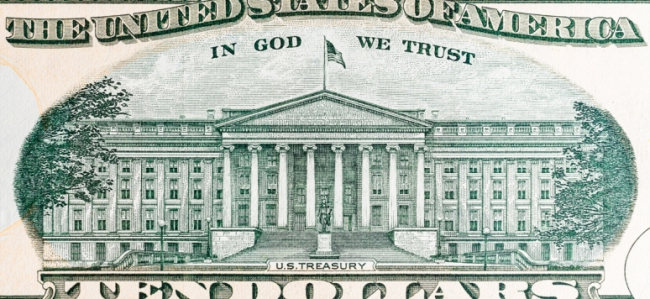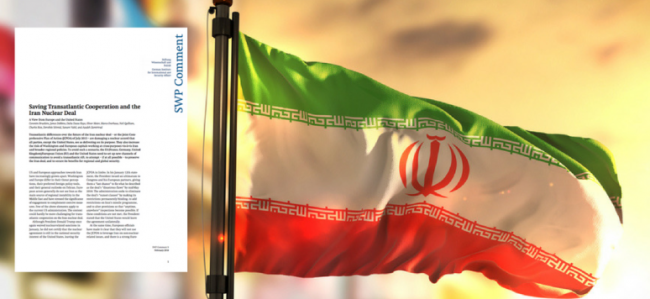Immigration: Europe in the Face of an Italian Crisis
Since the Italian election held on March 4th, 2018, immigration policy has become a hotter-than-ever issue both at national and European level. The Aquarius incident has brought to light the question of European solidarity regarding immigration issues.
The Three Dimensions of Europe's Defense Debate
In light of transatlantic tensions and a deteriorated security environment, European security affairs are at the crossroads.
The European Union's Struggle Against Terrorism
Since 2015, several countries in the European Union have been hit by attacks.
America Is More Than Trump. Europe Should Defend the Iran Deal without Burning Bridges to the US
US President Donald Trump’s decision to withdraw from the 2015 Iran nuclear deal, known as the Joint Comprehensive Plan of Action (JCPOA), will severely degrade regional and global security. His decision has increased the risk of war and a nuclear arms race in the Middle East and beyond.

European Foreign Policy in 2027: Preparing for the Unexpected
What risks might the European Union be facing in 2027? Shaken by growing internal agitation as well as wider geopolitical developments, the European Union (EU) needs to redefine its role on the world scene while strengthening its core project. Integration has taken place on all levels and risks are therefore increasingly a concern to the Union as a whole.
European Union Partnerships with African Countries on Migration: A Common Issue with Conflicting Interests
Since 2015 and the refugee crisis, the dialogue between the European Union (EU) and African countries on migration issues has assumed a new intensity.
Comply or die ? Les entreprises face à l’exigence de conformité venue des États-Unis
The United States has developed a vast body of legal regulations with extraterritorial application in order to tackle corruption on the international stage and to pursue companies that do not abide by the trade embargoes demanded by U.S. foreign policy.
Saving Transatlantic Cooperation and the Iran Nuclear Deal. A View from Europe and the United States
Transatlantic differences over the future of the Iran nuclear deal – or the Joint Comprehensive Plan of Action (JCPOA) of July 2015 – are damaging a nuclear accord that all parties, except the United States, see as delivering on its purpose. They also increase the risk of Washington and European capitals working at cross-purposes vis-à-vis Iran and broader regional policies. To avoid such a scenario, the E3 (France, Germany, United Kingdom)/European Union (EU) and the United States need to set up new channels of communication to avoid a transatlantic rift, to attempt – if at all possible – to preserve the Iran deal, and to secure its benefits for regional and global security.
Mixing Business with Europe: What Role for Companies on the Future of the EU?
The European Union (EU) is facing what the European Commission President, Jean-Claude Juncker, calls a ‘polycrisis’. The EU is under increasing pressure to deliver and address citizens’ concerns.
European Space Programs and the Digital Challenge
The exploration of space and the use of digital tools and systems have in common to be quite recent in human history but to have changed the world, society and economy by connecting people and things, breaking down borders, and redistributing knowledge, power and control.
Support independent French research
Ifri, a foundation recognized as being of public utility, relies largely on private donors – companies and individuals – to guarantee its sustainability and intellectual independence. Through their funding, donors help maintain the Institute's position among the world's leading think tanks. By benefiting from an internationally recognized network and expertise, donors refine their understanding of geopolitical risk and its consequences on global politics and the economy. In 2024, Ifri will support more than 70 French and foreign companies and organizations.







